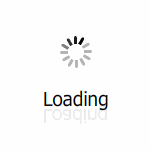Bank of Spain, the Spanish central bank, has warned customers that banks may take certain actions if they detect cryptocurrency purchases. According to a post on its website, the institution explains that traditional banks can block these transactions if they suspect they involve suspicious circumstances, such as those related to identity theft or money laundering.
Bank of Spain explains account restrictions related to cryptocurrency
In a recent post, the Bank of Spain explained the possible actions that banks can take when they detect cryptocurrency purchases. First and foremost, the bank explains that according to Spanish and European supervisors, these assets are not fit as payment methods or investment vehicles.
The bank also explains that accounts can be blocked as a result of suspicious behavior associated with identity theft. It explained:
It may happen that the bank has suspicions that identity theft with credential theft is taking place. There are frequent cases of fraud in which there is fraudulent access to the accounts of the clients of an entity after having stolen their passwords from the client, and which end in a transfer to acquire cryptocurrencies.
It may also trigger one of the alarms built into the banking system and cause the customer’s account to be blocked.
Money Laundering
It is also possible for transaction restrictions to be triggered by other factors. The post goes on to explain that clues linking funds transacted with money laundering can also cause the block of a cryptocurrency purchase transaction. In this sense, the bank clarified:
It may also happen that the bank classifies this type of operation as high risk and decides to require additional controls, such as making a phone call or asking you to come to the branch.
The banks are required to adhere to a series of laws that prevent them from executing transactions that might facilitate the laundering of funds or financing of terrorism. However, it was also explained that banks cannot do this without maintaining a line of communication with the affected user, giving a general reason for the block of the transaction. In some cases users may be asked to visit a bank branch. However, the post says banks are to remain flexible depending on the health status of the customer and the distance from their residence.
In Europe, MiCA, the Markets in Crypto Assets regulatory framework, is currently being drafted to clarify the attributions of each organization in relation to cryptocurrency and its associated actors.



